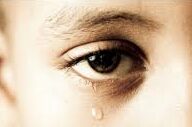
According to data submitted by India’s Women and Child Development Minister Smriti Zubin Irani on 28th November in Rajya Sabha, 32608 cases were registered in 2017 under the Protection of Children from Sexual Offences (POCSO) Act, 2012.
As per data, the Maharashtra became the top State in the country with 5248 registered cases. The Uttar Pradesh State, West Bengal, and Karnataka came in 2nd, 3rd and 4th spots with 4895, 2131 and 1956 registered cases respectively.
Here’ re number of cases registered under the POCSO Act, 2012 in the last three reports of NCRB.
| S.No. | State/UT | 2015 | 2016 | 2017 |
| CR | CR | CR | ||
| 1 | Andhra Pradesh | 1054 | 830 | 378 |
| 2 | Arunachal Pradesh | 54 | 59 | 14 |
| 3 | Assam | 819 | 821 | 1149 |
| 4 | Bihar | 187 | 233 | 1356 |
| 5 | Chhattisgarh | 1656 | 1570 | 1676 |
| 6 | Goa | 79 | 75 | 0 |
| 7 | Gujarat | 1609 | 1408 | 1697 |
| 8 | Haryana | 988 | 1020 | 1139 |
| 9 | Himachal Pradesh | 206 | 205 | 8 |
| 10 | Jammu & Kashmir | 30 | 25 | 0 |
| 11 | Jharkhand | 182 | 348 | 385 |
| 12 | Karnataka | 1526 | 1565 | 1956 |
| 13 | Kerala | 1486 | 1848 | 1169 |
| 14 | Madhya Pradesh | 4624 | 4717 | 1569 |
| 15 | Maharashtra | 4816 | 4815 | 5248 |
| 16 | Manipur | 43 | 43 | 29 |
| 17 | Meghalaya | 167 | 151 | 242 |
| 18 | Mizoram | 169 | 167 | 194 |
| 19 | Nagaland | 15 | 27 | 41 |
| 20 | Odisha | 1372 | 1928 | 249 |
| 21 | Punjab | 666 | 596 | 489 |
| 22 | Rajasthan | 1311 | 1479 | 1180 |
| 23 | Sikkim | 55 | 92 | 87 |
| 24 | Tamil Nadu | 1544 | 1583 | 1587 |
| 25 | Telangana | 1394 | 1158 | 1632 |
| 26 | Tripura | 133 | 156 | 139 |
| 27 | Uttar Pradesh | 4541 | 4954 | 4895 |
| 28 | Uttarakhand | 168 | 218 | 191 |
| 29 | West Bengal | 1504 | 2132 | 2131 |
| 30 | A&N Islands | 39 | 49 | 65 |
| 31 | Chandigarh | 62 | 51 | 3 |
| 32 | D&N Haveli | 15 | 11 | 12 |
| 33 | Daman & Diu | 5 | 10 | 5 |
| 34 | Delhi | 1936 | 1620 | 1623 |
| 35 | Lakshadweep | 1 | 5 | 4 |
| 36 | Puducherry | 49 | 53 | 66 |
| TOTAL (ALL INDIA) | 34505 | 36022 | 32608 | |
| Source: Crime in India | ||||
Police and public order are State subjects under the Seventh Schedule to the Constitution of India.
The responsibilities to maintain law and order, protection of life and property of the citizens including children, rest primarily with the respective State Governments and UT (Union Territory) Administration.
Further under Section 2(14) (ii) of the Juvenile Justice (Care and Protection of Children) Act, 2015 (JJ Act), such children are considered as children in need of care and protection deserving the Security net of Institutional and non-Institutional care under the JJ Act.
Under the Act a stringent penalty shall be imposed on whosoever employs or uses any child for the purpose of begging or causes any child to beg.


































































































